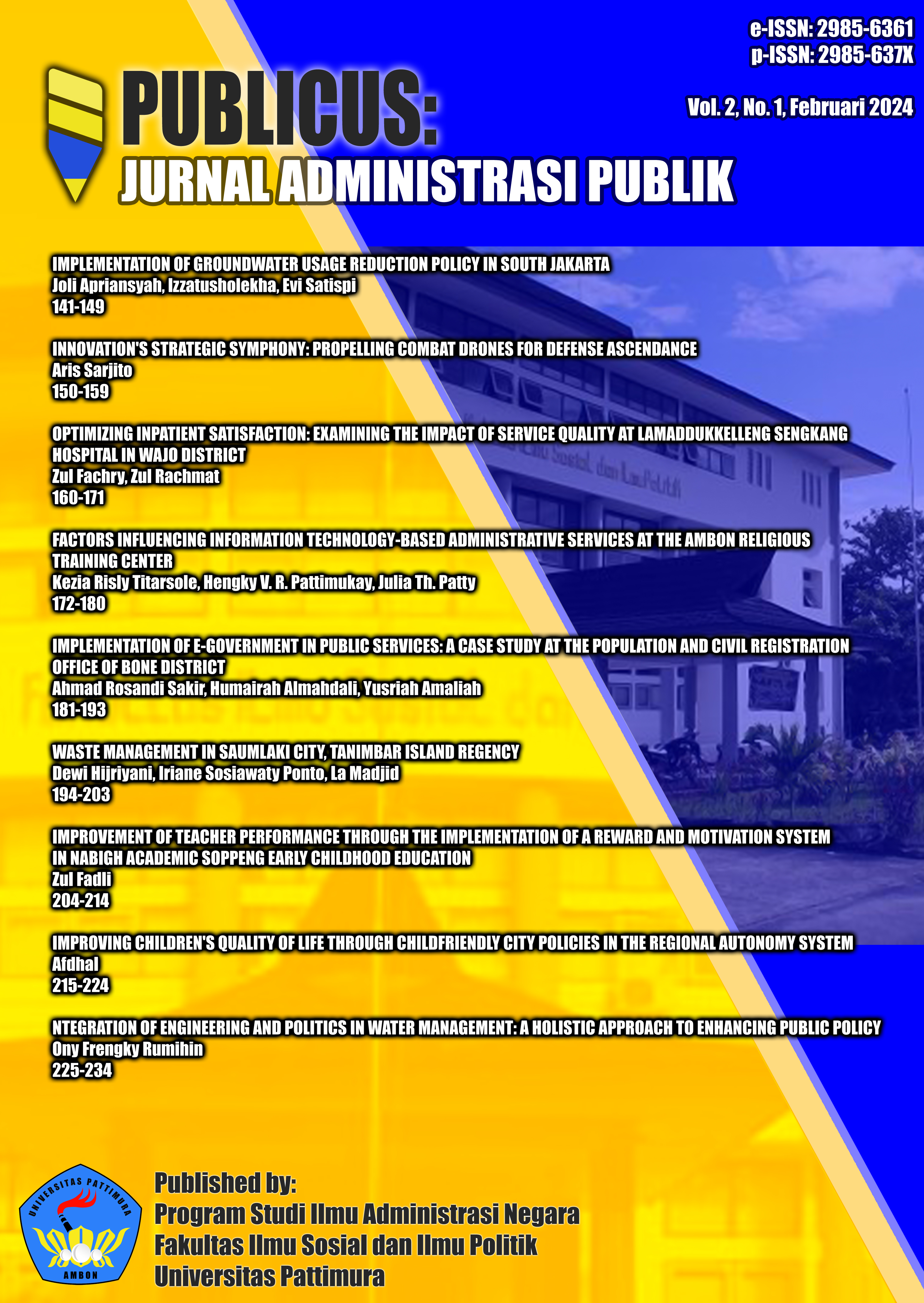INTEGRATION OF ENGINEERING AND POLITICS IN WATER MANAGEMENT: A HOLISTIC APPROACH TO ENHANCING PUBLIC
Abstract
This article explores the evolving concept of water governance across various nations, serving as a reference for effective and sustainable water management. Aligned with Sustainable Development Goal (SDG) No. 6, which focuses on Clean Water and Sanitation, Indonesia faces unique challenges due to its dual climate patterns of rainy and dry seasons. These climatic variations necessitate sound water resource management to address water shortages during droughts, prevent drought-related disasters and mitigate flood risks during the rainy season. Utilizing a literature review methodology, this research aims to comprehend the development of knowledge in the water governance concept, incorporating both technical and political dimensions in policy formulation. The findings underscore the significance of collaboration, cooperation, and participation among the government, community, and private sector in implementing effective water governance. Embracing the governance paradigm, the key takeaway is the need for collective efforts to establish robust water resource management, thereby ensuring the success of the clean water and sanitation program nationwide by 2030. However, it is crucial to acknowledge that not all variants of water governance models can be universally applied, considering the diverse institutional contexts and political cultures across different regions in Indonesia. Despite these challenges, this research underscores the importance of a holistic approach that integrates both technical and political aspects in water management policies, providing a foundation for achieving sustainable water access and sanitation goals.
Downloads
Copyright (c) 2024 Ony Frengky Rumihin

This work is licensed under a Creative Commons Attribution 4.0 International License.





.png)




